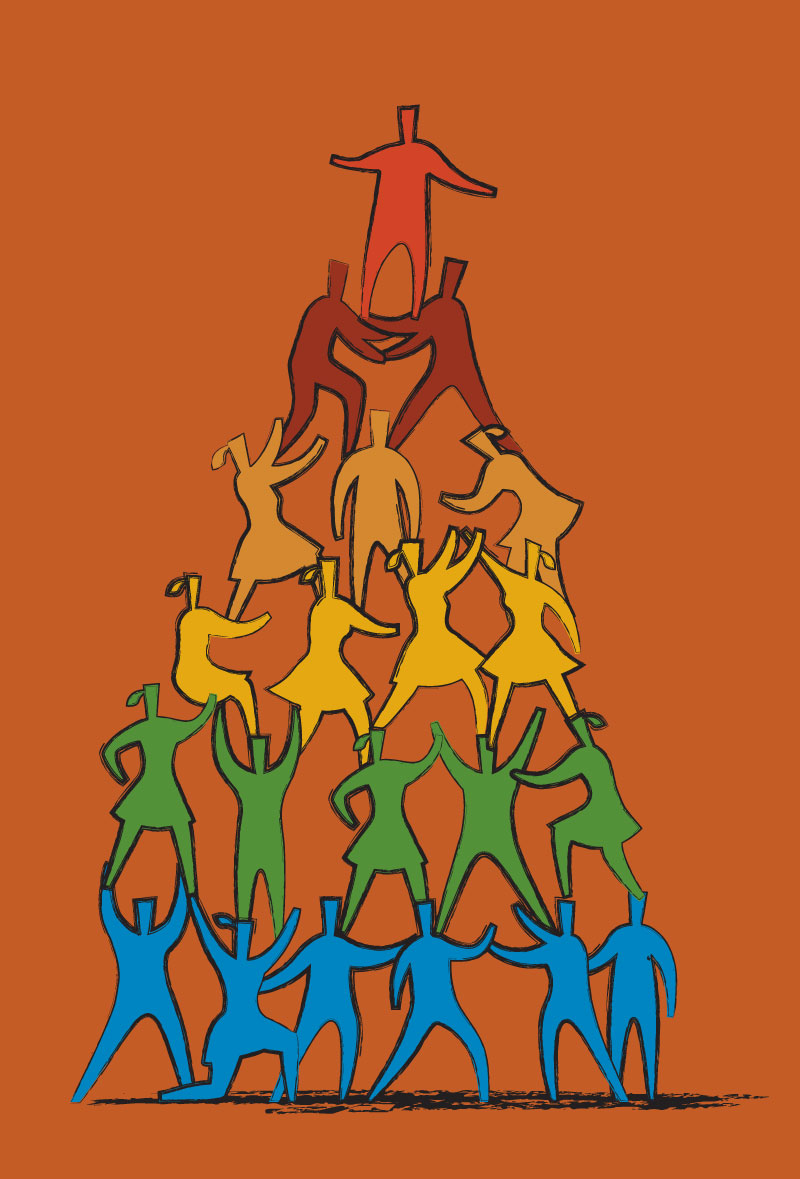
Do you feel the need to “watch your back” at work? How about your friends and family? What percentage of people do you think feel that they need to do so? Expand the experiences of your circle of contacts across the entire country and it would be interesting to discover how much time is wasted across all organizations with people “watching their backs”?
“Think about it. The total time spent in all organizations across the nation writing and sending emails, the only purpose of which is to demonstrate that something wasn’t a person’s fault, plus the time taken to create documents proving that a person did something, like assigned a task or completed a certain piece of work, plus the time taken on all the other buck-passing and back-covering activities going on across the country. Now, if you multiply the number of hours that takes by the average hourly wage and you have the total cost to our economy of that lack of trust.
That’s a shocking waste of time and money – just think of what could be achieved in all that collective time. If we replaced the back-covering activities with the simple act of trusting our colleagues, we’d be rewarded with all that extra time. Not only would we have more time to get more done, wouldn’t life be so much simpler and less stressful?
So… what are we waiting for?
Let’s be the ambassadors for trust in our organizations. Take a vow to yourself right now that you will accept the challenge to move your organization forward, and be the captain of TRUST in your company. TRUST stands for…
Talent: Throughout your organization, people have a variety of talents, opinions, experiences and outlooks. Value that diversity and make the best use you can of all those different talents. Involve people and their diverse ideas will enable better solutions!
Reassurance: When you have trust, you have confidence and you feel reassured. You no longer feel the need to cover your back all the time, which gives you increased capacity for productive activities.
Understanding: If you want to build trust, you need to believe each other and understand where the other party is coming from, valuing their perspectives. When people know that their contribution is valued and understood, they feel safe to express their opinions, which means much more information is available with which to make decisions.
Synergy: Without synergy, you don’t have a team. You have a group of individuals. Synergy provides the “glue” to get you all working together to achieve common goals, and be part of a whole which is greater than the sum of its parts. Synergy is built most commonly through trust. Without trust people cannot and will not work effectively and seamlessly together.
Truth: In order to gain trust, you must have truth, sincerity and the reliability that these things convey. When you know your team will keep their word, then you have trust in action. If your team isn’t in a place where they are free to tell the truth, you won’t be able to operate with trust.
This may all sound great, but trust isn’t a physical, quantifiable and visible entity. So how do we know if we have it in our organizations? How much do we have? As a starting point, you could ask yourself the following questions to see how your organization rates. Be honest with yourself – you’ll get a much more accurate picture.
•Do you actively seek out other people’s opinions? What do you do with them when you get them?
•Do you dismiss those opinions if they are different from your own?
•Do people truly value the diversity which is naturally present in your organization?
•Do you look for opportunities to group people with differing perspectives and experiences on teams together, such as steering groups or task forces?
•Do you talk negatively about other people in the organization or their opinions? How about your colleagues – do they?
•When you give your word at work, do you keep it?
•Do you believe in your colleagues?
•Are you brutally honest with yourself and those around you?
We all know that firm foundations are vital to any building project. When you build your organization on trust, then you build it on solid ground. However, to get that foundation, you need each and every member of the organization to be part of that trust. If just one of the team engenders mistrust, then the organization as a whole can spiral back down to the “bad old days” of back-covering and drain on energy and resources that this creates.
The good news is that this cuts both ways: Trust engenders further trust. Where a team operates with mutual trust, the resources of the organization are focused on its mission, not its internal politics. Within the organization, that trust promotes synergy, builds confidence, strengthens relationships and engenders partnership working. Through this, its people experience genuine progress and the personal fulfillment it unlocks.
If you want to experience this trust within your company, then it’s up to you to commit to being the catalyst and get the ball rolling:
•Build working relationships based on trust.
•Be true to your word – every time.
•Lead by example – look forward, don’t waste time watching your back.
•Embrace the diverse talents in your organization.
When people trust you and believe in you, it lifts your spirits. When you trust them, it does the same. People feel good about being trusted, valued and believed in, and respond positively to it. Be that positive influence for others, and they will pay it forward. And when that happens, business moves forward – quickly. Isn’t that what we all want?”












